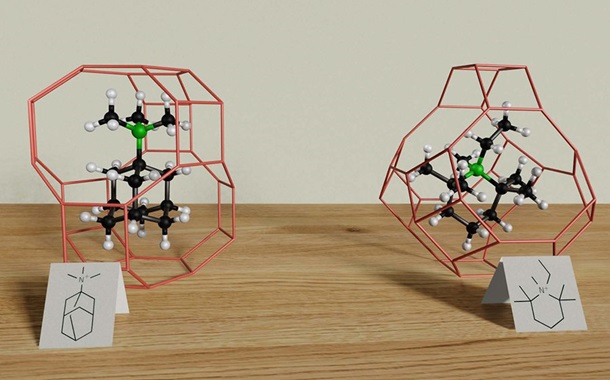Multi-Criteria Decision-Making Model to Achieve Sustainable Developmental Goals in Industry 4.0 for Smart City Infrastructure
Downloads
Doi:10.28991/HIJ-2024-05-04-018
Full Text:PDF
Downloads
McGowan, P. J. K., Stewart, G. B., Long, G., & Grainger, M. J. (2019). An imperfect vision of indivisibility in the Sustainable Development Goals. Nature Sustainability, 2(1), 43–45. doi:10.1038/s41893-018-0190-1.
Williams, K. (2010). Sustainable cities: Research and practice challenges. International Journal of Urban Sustainable Development, 1(1–2), 128–132. doi:10.1080/19463131003654863.
Bouzguenda, I., Alalouch, C., & Fava, N. (2019). Towards smart sustainable cities: A review of the role digital citizen participation could play in advancing social sustainability. Sustainable Cities and Society, 50, 101627. doi:10.1016/j.scs.2019.101627.
Arun, M., Barik, D., & Chandran, S. S. R. (2024). Exploration of material recovery framework from waste – A revolutionary move towards clean environment. Chemical Engineering Journal Advances, 18, 100589. doi:10.1016/j.ceja.2024.100589.
Sony, M., & Naik, S. (2020). Key ingredients for evaluating Industry 4.0 readiness for organizations: a literature review. Benchmarking, 27(7), 2213–2232. doi:10.1108/BIJ-09-2018-0284.
Pech, M., & Vrchota, J. (2020). Classification of small- and medium-sized enterprises based on the level of industry 4.0 implementation. Applied Sciences (Switzerland), 10(15), 5150. doi:10.3390/app10155150.
Uslu, B., Eren, T., Gür, Šž., & Özcan, E. (2019). Evaluation of the Difficulties in the Internet of Things (IoT) with Multi-Criteria Decision-Making. Processes, 7(3), 164. doi:10.3390/pr7030164.
Mastrocinque, E., Ramírez, F. J., Honrubia-Escribano, A., & Pham, D. T. (2020). An AHP-based multi-criteria model for sustainable supply chain development in the renewable energy sector. Expert Systems with Applications, 150, 113321. doi:10.1016/j.eswa.2020.113321.
Mahajan, A., Binaz, V., Singh, I., & Arora, N. (2022). Selection of Natural Fiber for Sustainable Composites Using Hybrid Multi Criteria Decision Making Techniques. Composites Part C: Open Access, 7, 100224. doi:10.1016/j.jcomc.2021.100224.
Wu, Y., Liao, M., Hu, M., Lin, J., Zhou, J., Zhang, B., & Xu, C. (2020). A decision framework of low-speed wind farm projects in hilly areas based on DEMATEL-entropy-TODIM method from the sustainability perspective: A case in China. Energy, 213, 119014. doi:10.1016/j.energy.2020.119014.
Memari, A., Dargi, A., Akbari Jokar, M. R., Ahmad, R., & Abdul Rahim, A. R. (2019). Sustainable supplier selection: A multi-criteria intuitionistic fuzzy TOPSIS method. Journal of Manufacturing Systems, 50, 9–24. doi:10.1016/j.jmsy.2018.11.002.
Maghsood, F. F., Moradi, H., Berndtsson, R., Panahi, M., Daneshi, A., Hashemi, H., & Bavani, A. R. M. (2019). Social acceptability of flood management strategies under climate change using contingent valuation method (CVM). Sustainability (Switzerland), 11(18), 5053. doi:10.3390/su11185053.
Mishra, A. R., Rani, P., & Prajapati, R. S. (2021). Multi-criteria weighted aggregated sum product assessment method for sustainable biomass crop selection problem using single-valued neutrosophic sets. Applied Soft Computing, 113, 108038. doi:10.1016/j.asoc.2021.108038.
Chen, Y., & Zhang, D. (2020). Evaluation of city sustainability using multi-criteria decision-making considering interaction among criteria in Liaoning province China. Sustainable Cities and Society, 59, 102211. doi:10.1016/j.scs.2020.102211.
Liesefeld, H. R., & Müller, H. J. (2019). Distractor handling via dimension weighting. Current Opinion in Psychology, 29, 160–167. doi:10.1016/j.copsyc.2019.03.003.
Zeng, S., Zhou, J., Zhang, C., & Merigó, J. M. (2022). Intuitionistic fuzzy social network hybrid MCDM model for an assessment of digital reforms of manufacturing industry in China. Technological Forecasting and Social Change, 176, 121435. doi:10.1016/j.techfore.2021.121435.
Sodiq, A., Baloch, A. A. B., Khan, S. A., Sezer, N., Mahmoud, S., Jama, M., & Abdelaal, A. (2019). Towards modern sustainable cities: Review of sustainability principles and trends. Journal of Cleaner Production, 227, 972–1001. doi:10.1016/j.jclepro.2019.04.106.
Akande, A., Cabral, P., Gomes, P., & Casteleyn, S. (2019). The Lisbon ranking for smart sustainable cities in Europe. Sustainable Cities and Society, 44, 475–487. doi:10.1016/j.scs.2018.10.009.
Ameen, R. F. M., & Mourshed, M. (2019). Urban sustainability assessment framework development: The ranking and weighting of sustainability indicators using analytic hierarchy process. Sustainable Cities and Society, 44, 356–366. doi:10.1016/j.scs.2018.10.020.
Turner-Skoff, J. B., & Cavender, N. (2019). The benefits of trees for livable and sustainable communities. Plants People Planet, 1(4), 323–335. doi:10.1002/ppp3.39.
Mahmoud, S., Zayed, T., & Fahmy, M. (2019). Development of sustainability assessment tool for existing buildings. Sustainable Cities and Society, 44, 99–119. doi:10.1016/j.scs.2018.09.024.
Sodhro, A. H., Pirbhulal, S., Luo, Z., & de Albuquerque, V. H. C. (2019). Towards an optimal resource management for IoT based Green and sustainable smart cities. Journal of Cleaner Production, 220, 1167–1179. doi:10.1016/j.jclepro.2019.01.188.
Olakitan Atanda, J. (2019). Developing a social sustainability assessment framework. Sustainable Cities and Society, 44, 237–252. doi:10.1016/j.scs.2018.09.023.
Jararweh, Y., Otoum, S., & Ridhawi, I. Al. (2020). Trustworthy and sustainable smart city services at the edge. Sustainable Cities and Society, 62, 102394. doi:10.1016/j.scs.2020.102394.
Yang, J., Kwon, Y., & Kim, D. (2021). Regional Smart City Development Focus: The South Korean National Strategic Smart City Program. IEEE Access, 9, 7193–7210. doi:10.1109/ACCESS.2020.3047139.
Kuru, K., & Ansell, D. (2020). TCitySmartF: A comprehensive systematic framework for transforming cities into smart cities. IEEE Access, 8, 18615–18644. doi:10.1109/ACCESS.2020.2967777.
Hosseini Dehshiri, S. J., & Amiri, M. (2024). Evaluation of blockchain implementation solutions in the sustainable supply chain: A novel hybrid decision approach based on Z-numbers. Expert Systems with Applications, 235, 121123. doi:10.1016/j.eswa.2023.121123.
Hosseini Dehshiri, S. J., Emamat, M. S. M. M., & Amiri, M. (2022). A novel group BWM approach to evaluate the implementation criteria of blockchain technology in the automotive industry supply chain. Expert Systems with Applications, 198, 116826. doi:10.1016/j.eswa.2022.116826.
Sousa, M., Almeida, M. F., & Calili, R. (2021). Multiple criteria decision making for the achievement of the UN sustainable development goals: A systematic literature review and a research agenda. Sustainability (Switzerland), 13(8), 4129. doi:10.3390/su13084129.
Mabkhot, M. M., Ferreira, P., Maffei, A., Podržaj, P., Mč…dziel, M., Antonelli, D., Lanzetta, M., Barata, J., Boffa, E., Finžgar, M., PaŠ›ko, Š., Minetola, P., Chelli, R., Nikghadam-Hojjati, S., Wang, X. V., Priarone, P. C., Litwin, P., Stadnicka, D., Lohse, N., & Lupi, F. (2021). Mapping industry 4.0 enabling technologies into United Nations sustainability development goals. Sustainability (Switzerland), 13(5), 1–35. doi:10.3390/su13052560.
- This work (including HTML and PDF Files) is licensed under a Creative Commons Attribution 4.0 International License.





















